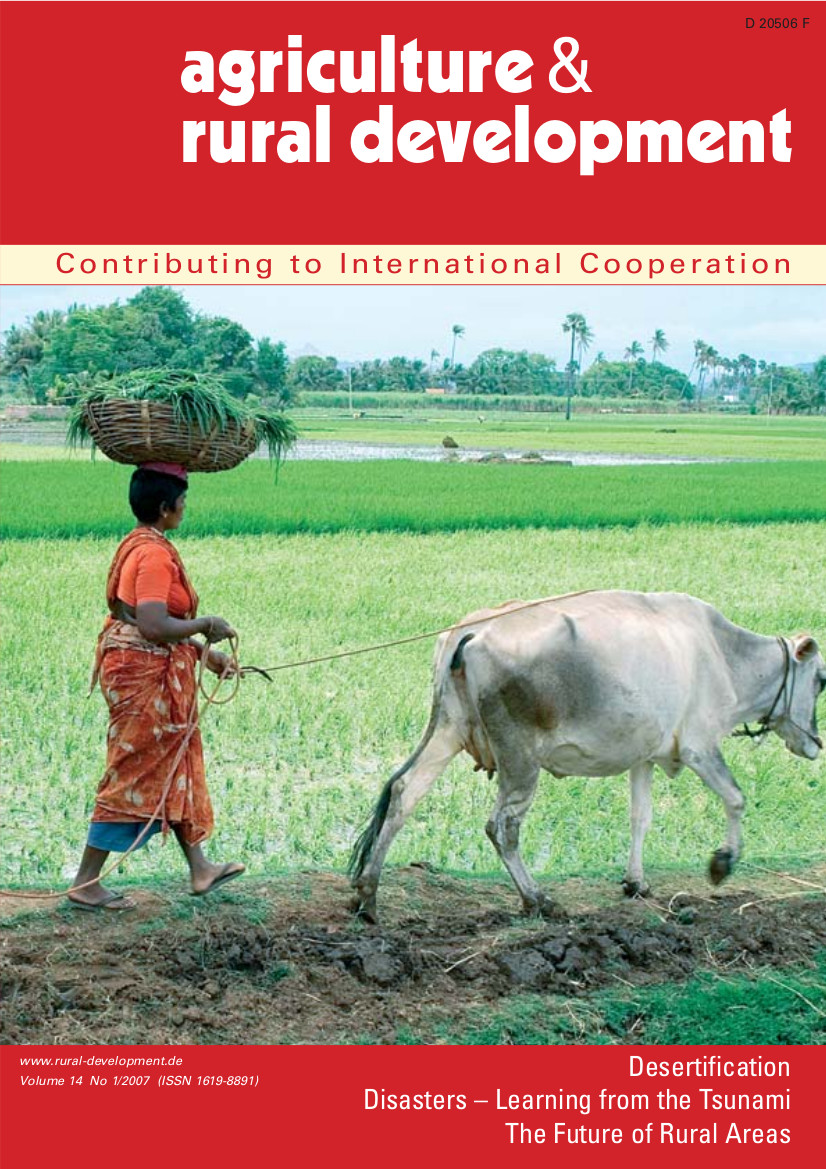Regional aspects - Sub-Saharan Africa. Combating desertification - the big challenge for the 21st Century
Hardest hit by desertification is Sub-Saharan Africa, where poverty is more widespread, preparedness for catastrophe is lower, and means for adequately coping with the phenomenon are very weak; two thirds of the arable land will be lost by 2025.The subcontinent needs improved integrated initiatives on local, national und multinational level for a sustainable natural resources management.

